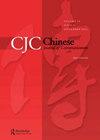Cyber anti-intellectualism and information seeking about SARS-CoV-2 variants
IF 1.9
2区 文学
Q2 COMMUNICATION
引用次数: 0
Abstract
While scientific knowledge acquisition is a vital premise for citizens' self-protection against COVID-19, the impact of anti-intellectualism on scientific information seeking has yet to be fully examined. Based on a cross-sectional survey, this study investigated the association of distrust and stigmatization forms of anti-intellectualism (i.e. AID vs. AIS) with the Planned Risk Information Seeking Model (PRISM) in predicting Chinese netizens' information seeking about SARS-CoV-2 variants. The statistical results show that AIS is positively associated with seeking-related subjective norms and perceived control, indicating that it may boost a sense of self-empowerment. However, AIS is negatively related to affective risk response and the knowledge-sufficiency threshold, suggesting its possible link to overconfidence and trust in government. AID was found to be negatively associated with seeking-related attitudes and perceived control. Because AIS is far more popular than AID among respondents, its contradictory health implications should be brought into the vision of health communicators. © 2023 The Centre for Chinese Media and Comparative Communication Research, The Chinese University of Hong Kong.网络反智主义和寻找新冠病毒变种信息
虽然获取科学知识是公民自我保护的重要前提,但反智主义对科学信息寻求的影响尚未得到充分研究。基于横断面调查,本研究探讨了反智主义的不信任和污名化形式(即AID vs. AIS)与计划风险信息寻求模型(PRISM)在预测中国网民对SARS-CoV-2变体的信息寻求中的关系。统计结果显示,AIS与寻找相关的主观规范和感知控制呈正相关,表明它可能促进自我赋权感。然而,AIS与情感风险反应和知识充足阈值呈负相关,表明其可能与过度自信和对政府的信任有关。发现AID与寻求相关的态度和感知控制负相关。由于在应答者中,AIS远比艾滋病更受欢迎,因此应将其相互矛盾的健康影响纳入卫生传播者的视野。©2023香港中文大学中文传媒及比较传播研究中心。
本文章由计算机程序翻译,如有差异,请以英文原文为准。
求助全文
约1分钟内获得全文
求助全文

 求助内容:
求助内容: 应助结果提醒方式:
应助结果提醒方式:


